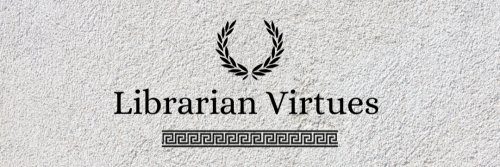Goddess Nike - Tumblr Posts

If moral virtue is knowledge, then is it proof that someone has knowledge if he lives a virtuous life? But might not someone be virtuous without knowledge -- if invalid reasoning has led him to the good? Is not the good the good regardless of the path that leads to it? (Or can flawed reasoning never even accidentally arrive at the truth?).
"If moral virtue is knowledge, then is it proof that someone has knowledge if he lives a virtuous life?"if you truly understand what is good, you will act in accordance with it. From this perspective, a virtuous life is indeed a manifestation of knowledge, because moral errors would be rooted in ignorance. So, yes, for Socratic intellectualism, living virtuously is proof of knowledge.
"But might not someone be virtuous without knowledge — if invalid reasoning has led him to the good?". You might argue that someone could stumble upon the good through flawed or incomplete reasoning. Aristotle, for example, suggested that habituation (repeatedly practicing virtuous actions) can lead to virtue, even if one doesn't fully grasp the reasoning behind those actions. So, someone might act virtuously without intellectual knowledge of why those actions are good.
"Is not the good the good regardless of the path that leads to it?".the objective goodness of an action is independent of how one arrives at it. In that sense, yes, the good remains good, whether one reaches it through flawless reasoning, intuition, or even chance.
"Or can flawed reasoning never even accidentally arrive at the truth?". Flawed reasoning can sometimes lead to correct conclusions, even if the reasoning process itself is faulty. For example, someone could hold a superstitious belief that by helping others, good fortune will come to them, leading them to act virtuously. While their reasoning is flawed, their actions are still good. Aristotle acknowledged that people could behave in ways that are accidentally virtuous, but true virtue requires both correct reasoning and correct action.
While Socratic intellectualism would reject the idea that someone can be virtuous without knowledge, other perspectives—like Aristotle's—acknowledge that virtuous behavior can occur even without perfect understanding. However, true virtue for Aristotle requires more than just accidental or habituated actions; it requires practical wisdom, which is a form of knowledge.
